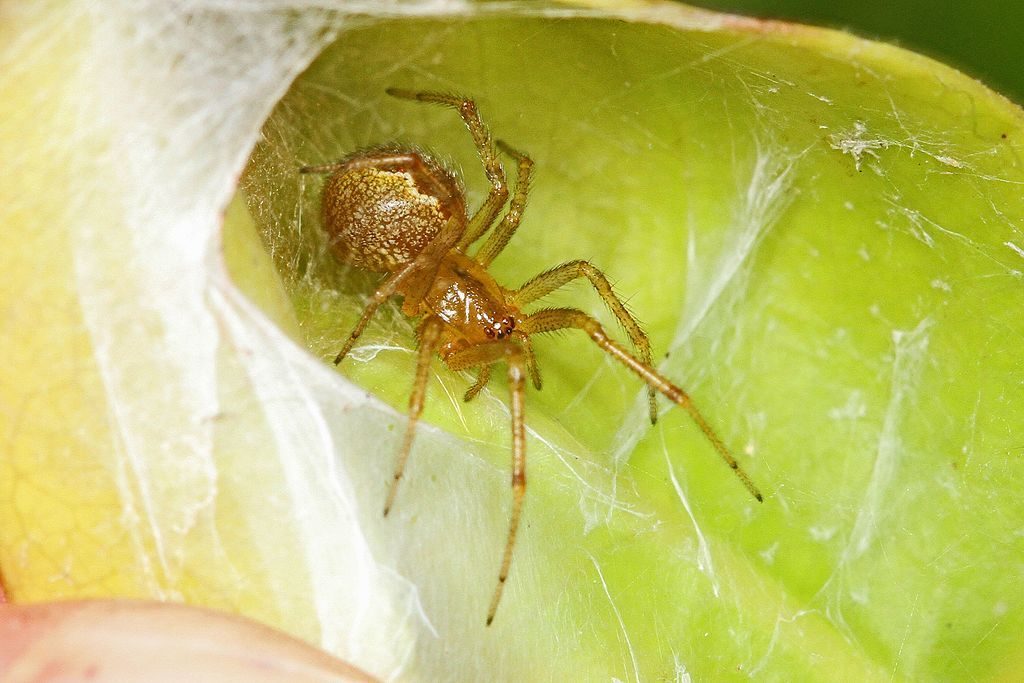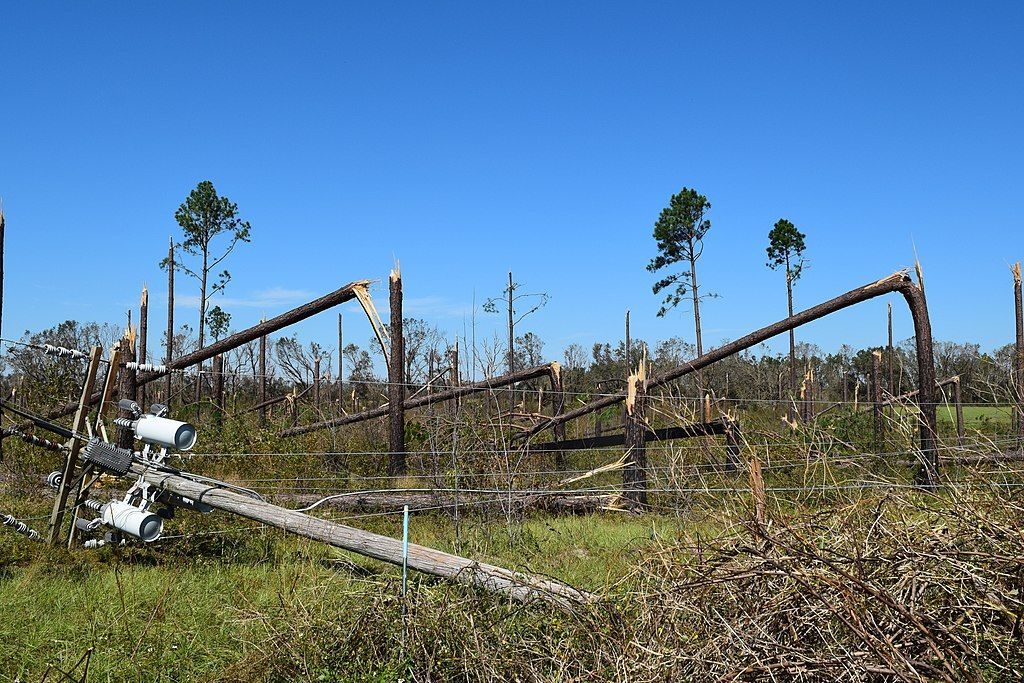
Comb-footed spiders (Anelosimus studiosus) have a lot of personality. These social cobweb spiders live in colonies of 40-100 individuals, build their webs around branches, and hunt cooperatively to capture large prey.
The spiders exhibit either aggressive or docile personalities. If you know what to look for you can tell the difference. In the evening aggressive A.studiosus attack each other and then retire to opposite corners of the web; docile spiders rest side by side. Aggressive spiders come out to attack when their web is disturbed, the docile ones stay inside.
What happens to these spiders when they’re hit by a tropical storm or hurricane? Is there a difference in which spiders survive?
A 2018 study led by Jonathan Pruitt of U.C. Santa Barbara tracked 240 Anelosimus studiosus colonies in seven states including Florida, Alabama and the Carolinas. For baseline data they recorded the locations and personalities of the spider colonies. Later they searched for spider webs after a tropical storm or hurricane had passed.
You might think it’s futile to look for cobwebs after hurricanes, but individual spiders do survive, stay on their home territory, and rebuild. While humans are picking up the pieces, the spiders are too.

The study found that the storms always wiped out the docile spiders but the aggressive ones survived.
The relentless pressure of weather and nature is changing the spider population. Among comb-footed spiders, only the strong personalities survive.
For more information see Science Magazine: “Tropical storms are making these spiders more aggressive” and “For spiders, it’s cruel to be kind”
UPDATE 31 JAN 2020: Is this research true? The work of biologist Jonathan Pruitt is being called into question: Spider biologist denies suspicions of widespread data fraud in his animal personality research
(photos from Wikimedia Commons; click on the captions to see the originals)